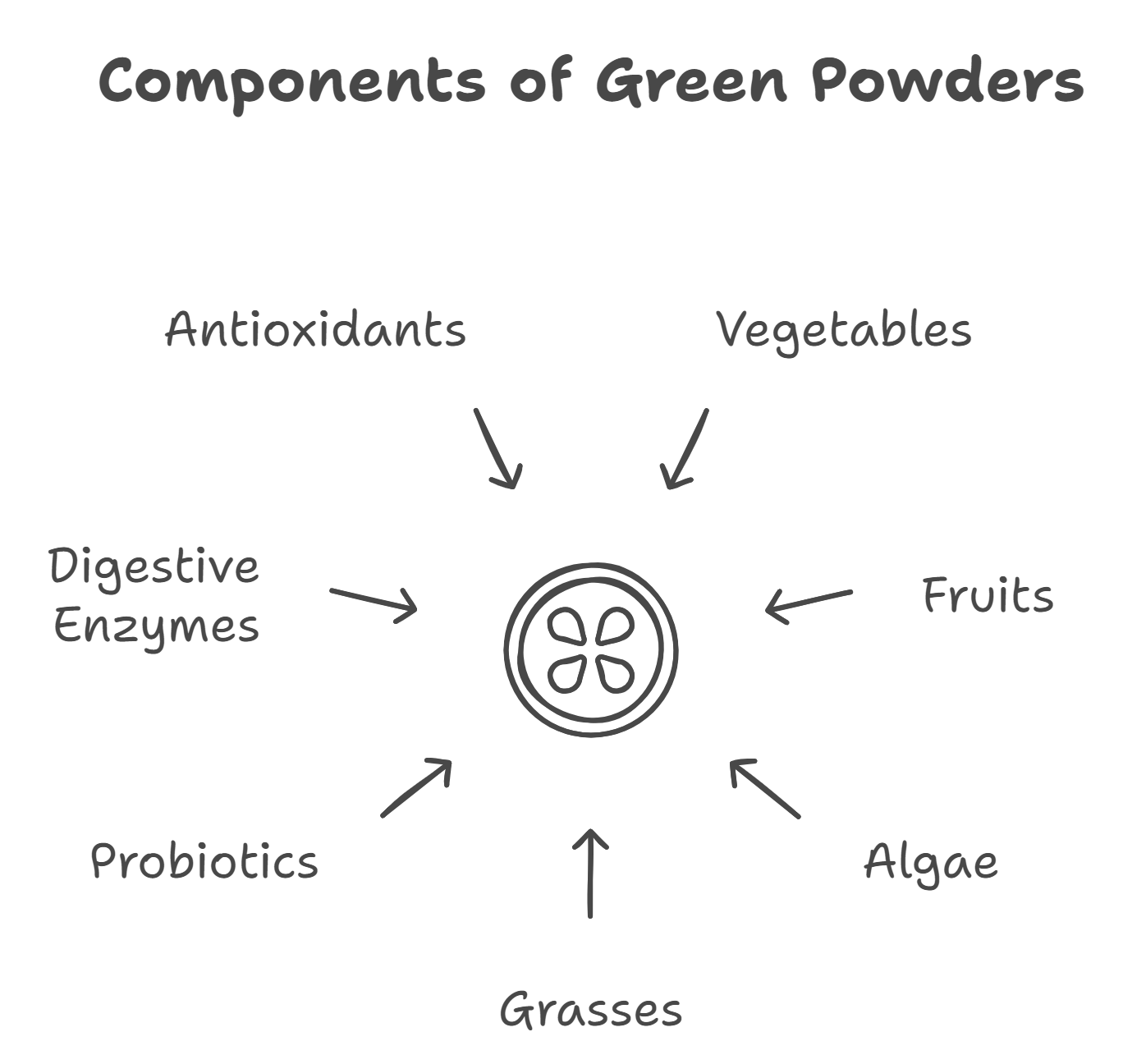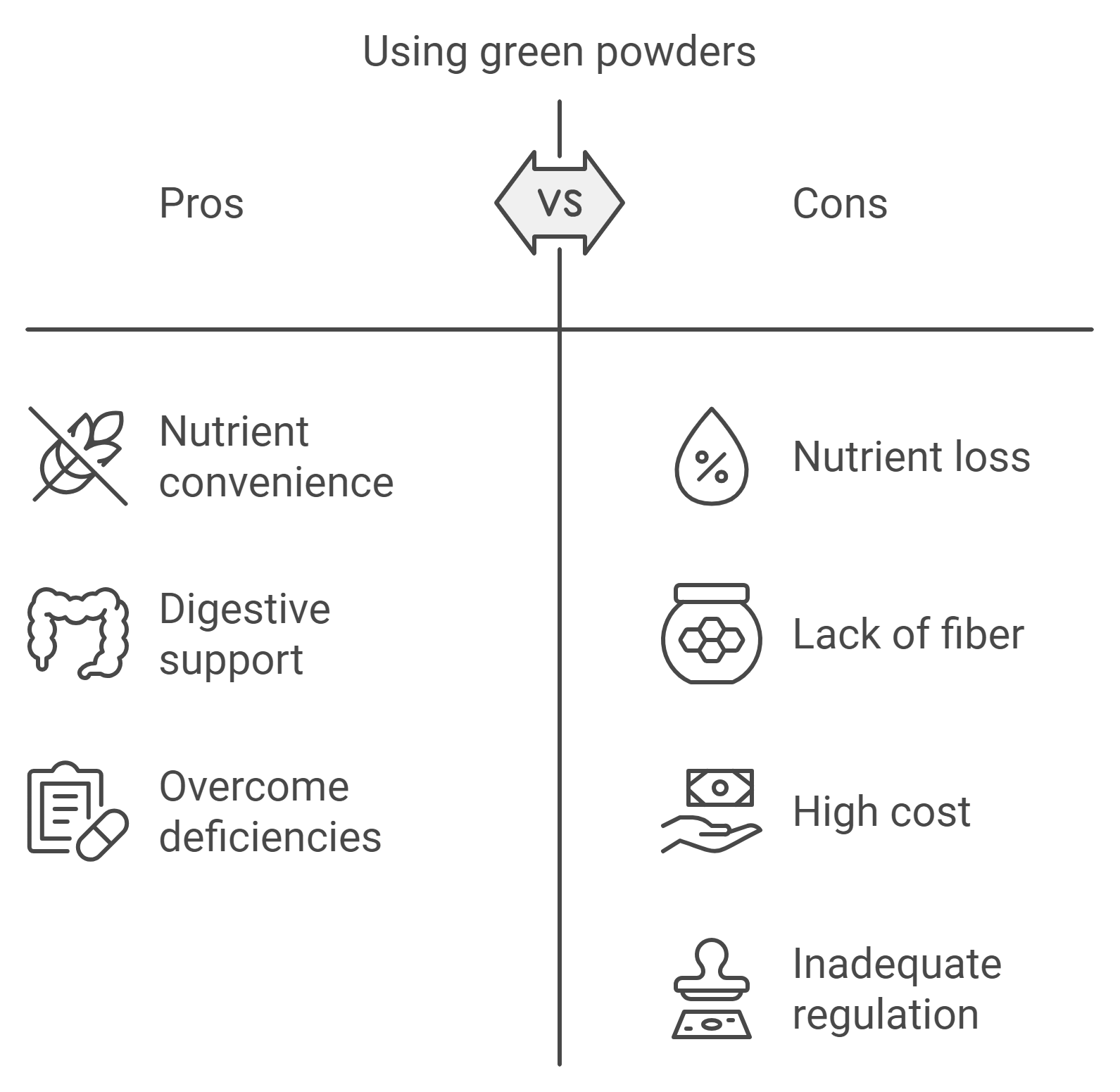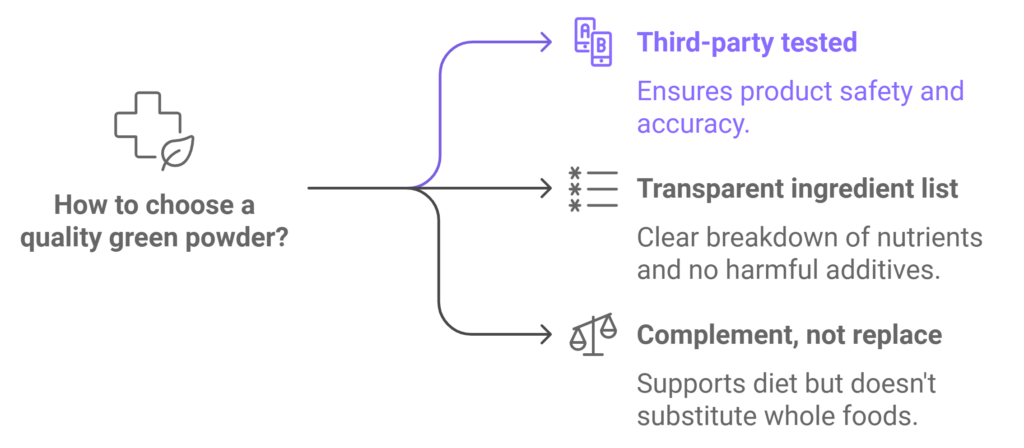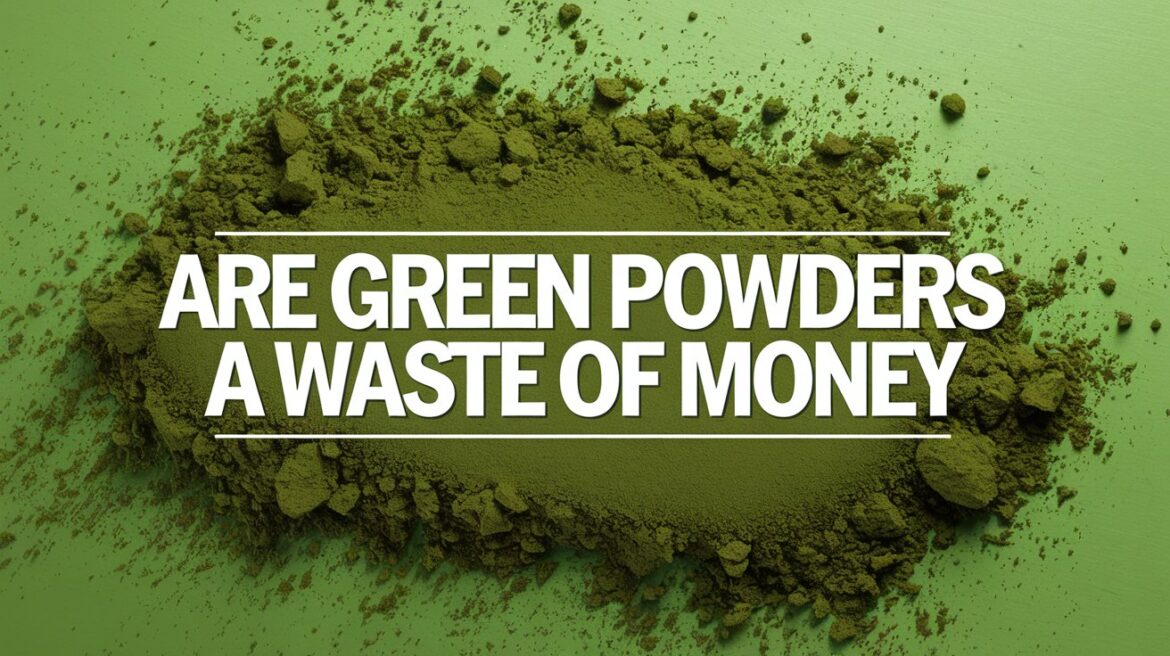Exact Query Answer: Are Green Powders a Waste of Money?
Green powders are not necessarily a waste of money, depending on the needs of every single individual. They can be a good supplement to vitamins, minerals, and antioxidants in one’s diet, though the benefits of whole fruits and vegetables can never compare to the equivalent forms in powder.
Additionally, scientific evidence supporting their health claims is limited, making their efficacy highly individualistic. People with balanced diets may not need them, while others might find them useful in bridging nutritional gaps.
Know About Green Powders
What Are Green Powders?
Green powders are basically supplements which are prepared as dried, powdered vegetables, fruits, algae, grasses, and sometimes other raw materials. These supplements are targeted at those who find it hard to consume the number of servings of vegetables necessary in a day since these are easy alternatives.
Some contain probiotics, digestive enzymes, and antioxidants to confer wider health benefits. Supplements can take any form, but at their core is the concept of delivering concentrated micronutrients in a convenient-to-use format(\The Balanced Nutritionist\).

Do Green Powders Truly Deliver?
Claims Laid Out by Green Powder Companies
Green powders typically market their products as energy-boosters that improve digestion, boost metabolism, and support immune function; in making nutrient-dense plant extracts, the combination of antioxidants, probiotics, and vitamins may confer on the whole health benefit. These claims are often supplemented with particular types of ingredients used, such as spirulina, chlorella, and wheatgrass(\The Balanced Nutritionist\).
Are these claims Scientifically Valid?
Although the ingredients included in green powders are nutrient-rich, scientific evidence to back up their promises is limited. Because many of these studies examine only component parts of the product, not the product as a whole, findings are also difficult to generalize.
For example, other studies have shown that spirulina and chlorella can lower oxidative stress and promote immune function, but whether this translates to an impact that users can measurably feel in their own health is less clear.
These powdered nutrients might also have an upside: their bioavailability compared to whole foods, although most of these vitamins and antioxidants would degrade in the process of turning them into a powder.
Advantages and Disadvantages about Using Green Powders
Advantages of Green Powders
Convenience: The main advantage of green powders is the convenience through which they provide increased nutrient intake, especially for time-starved people who cannot make it to their desired number of fruits and vegetable daily servings(\The Balanced Nutritionist\).
They contain concentrated vitamins, minerals, and antioxidants from green powders. It may help individuals overcome nutrient deficiency in diet.
Helps Digest Green powders contain enzymes and probiotics, which would potentially assist with digestion and promote gut health. It is therefore best for people who experience some discomfort in their digestion .
Cons of Green Powders
Nutrient Loss In Processing:
With green powders manufactured from vegetables and fruits, drying and powdering may also result in some loss of essential nutrients, especially water-soluble vitamins including Vitamin C(\The Balanced Nutritionist\).That makes them less potent than if eaten as their fresh variants.
Lack of Fiber:
Most green powders lack dietary fiber that can be a source of digestive health. Since whole fruits and vegetables are good sources of fiber, this makes it one of the main reasons why many green powders fail to serve the total purpose.
Cost:
The powders are costlier, ranging from $40 to $100 per month depending on brand. For most, this is too expensive for a supplement as there might be an already healthy diet consisting of whole foods(\The Balanced Nutritionist\).
Inadequate Regulation:
Since green powders are actually dietary supplements, the FDA does not regulate them much. This means their ingredient quality, purity, and potency might be low in some cases. Seek a product which has been tested by a third-party organization to prove it does not contain contaminants .

How to Select a Quality Green Powder
Search for Third-Party Testing
The only sure way of guaranteeing that what is on the label is inside the product and that it is free from all harmful contaminants, including heavy metals and pesticides, is to choose a third-party-tested green powder.
Check out the Ingredient List
Transparency of ingredient list:
Blends of proprietary products do not clearly state what percentage of the product is which of the key nutrients. While possible to estimate sometimes, it’s often difficult to say how effective that exact blend would be without knowing the breakdown of the exact percentages of the “other stuff” in the blend. Specifically, look for products that break down their ingredient quantities, avoiding products that contain added sugars, artificial flavors, and fillers(\The Balanced Nutritionist\).
Can Green Powders Replace Whole Foods?
Green Powders vs. Vegetables
While the green powders complement the diet, they do not form part of a replacement diet. Whole foods provide nutrients, fiber, and water for the sake of health. Fresh produce also contains phytochemicals and other compounds that might not be as well preserved in the powdered form. Hence, the green powder must be considered more as a supportive tool than a substitute for the usual diet comprising fresh vegetables.

Frequently Asked Questions
Do I need green powders?
It is not necessary if you are already consuming a balanced diet full of fruits and vegetables; however, people who find it hard to consume enough plant-based foods in their diet would benefit from green powders.
Can green powders replace my vegetables?
No, green powders do not replace whole vegetables. Those have more fibers and phytochemicals than the pure vitamins and minerals in the green powders.
Do green powders have adverse side effects?
Someone might react adversely, particularly if she or he takes a green powder supplement, by bloating up or experiencing diarrhea. This might be due to a concentration of diverse ingredients or to probiotics.
How much do green powders cost?
It really depends on the brand and the product but usually, green powders fall in between $40-$100 per month. Specific price would depend upon the brand, ingredients, and whether it has probiotics or enzymes.
What do you look for in a green powder?
Third-party testing and clear label designation of ingredients are musts. Also, one should choose products that disclose the specific amount of a nutrient rather than proprietary blends hiding the amounts of various ingredients.

